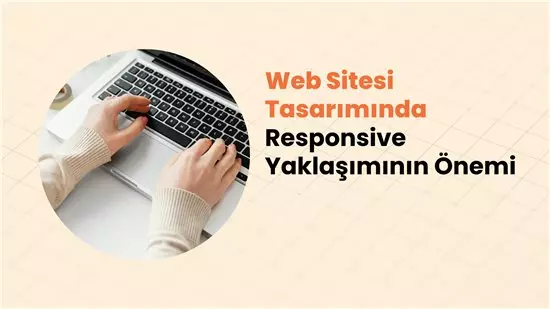Introduction
In today's digital age, having a responsive website design is crucial for businesses and individuals alike. A responsive approach ensures that a website adapts and displays properly on various devices, including desktop computers, tablets, and smartphones. In this article, we will explore the importance of responsive web design and its impact on user experience, search engine optimization (SEO), and social media presence. Let's delve into the details of why responsive web design is essential in the modern era.
1. What is Responsive Web Design?
Responsive web design refers to the practice of creating websites that can adapt and adjust their layout based on the device and screen size on which they are accessed. It involves using a flexible grid system, fluid images, and CSS media queries to ensure that the website's content and design elements are optimized for different screen resolutions.
2. Enhanced User Experience
One of the primary reasons why responsive web design is vital is its ability to provide an enhanced user experience. With the ever-increasing use of smartphones and tablets, people access the internet through various devices. A responsive website ensures that users can easily navigate, read, and interact with the content regardless of the screen size or orientation. By offering a seamless user experience, businesses can improve engagement, reduce bounce rates, and increase conversions.
3. SEO Benefits
Responsive web design is not only user-friendly but also plays a crucial role in improving search engine rankings. Search engines like Google prioritize mobile-friendly websites and consider responsiveness as a ranking factor. With a responsive website, you can have a single URL for your content, making it easier for search engines to crawl and index your pages. Additionally, responsive design reduces the likelihood of duplicate content issues that can arise from having separate mobile and desktop versions of your site.
4. Social Media Integration
In today's interconnected world, social media presence is essential for businesses to reach their target audience. A responsive website ensures that your content is easily shareable across various social media platforms. Whether someone accesses your website through a desktop computer or a mobile device, they can conveniently share your content, increasing its visibility and potential reach. This integration between responsive design and social media enhances brand exposure and drives traffic to your website.
5. Cost and Time Efficiency
Another advantage of responsive web design is the cost and time efficiency it offers. Rather than developing separate websites for different devices, responsive design enables you to create a single website that adapts to all screens. This approach reduces development and maintenance costs, as well as the time required for updates and bug fixes. By investing in responsive design from the start, you can save resources in the long run and ensure that your website remains accessible to users regardless of the device they use.
6. Competitive Edge
Having a responsive website design provides a competitive edge in today's online landscape. With more and more people accessing the internet through mobile devices, businesses that embrace responsive design can cater to a wider audience. By delivering a seamless experience across devices, you can stand out from your competitors and leave a lasting impression on potential customers.
Conclusion
In conclusion, responsive web design is crucial in today's digital world. It not only improves the user experience but also enhances SEO performance, social media integration, and overall cost efficiency. By adopting a responsive approach, businesses can stay ahead of the curve, reach a broader audience, and ensure that their website delivers a consistent and engaging experience across all devices.
FAQs (Frequently Asked Questions)
1. Why is responsive web design important?
Responsive web design is important because it ensures that websites can adapt and display properly on different devices, providing an enhanced user experience.
2. How does responsive design impact SEO?
Responsive design positively impacts SEO by improving search engine rankings, reducing duplicate content issues, and providing a better user experience.
3. Can I have a separate mobile version of my website instead of a responsive design?
While having a separate mobile version is an option, responsive design offers more cost and time efficiency, as well as better SEO performance.
4. Does responsive web design improve social media integration?
Yes, responsive web design makes it easier for users to share your content across various social media platforms, increasing its visibility and reach.
5. Is responsive web design a one-time investment?
Responsive web design is a one-time investment that saves costs in the long run, as it eliminates the need for separate websites for different devices and reduces maintenance efforts.






